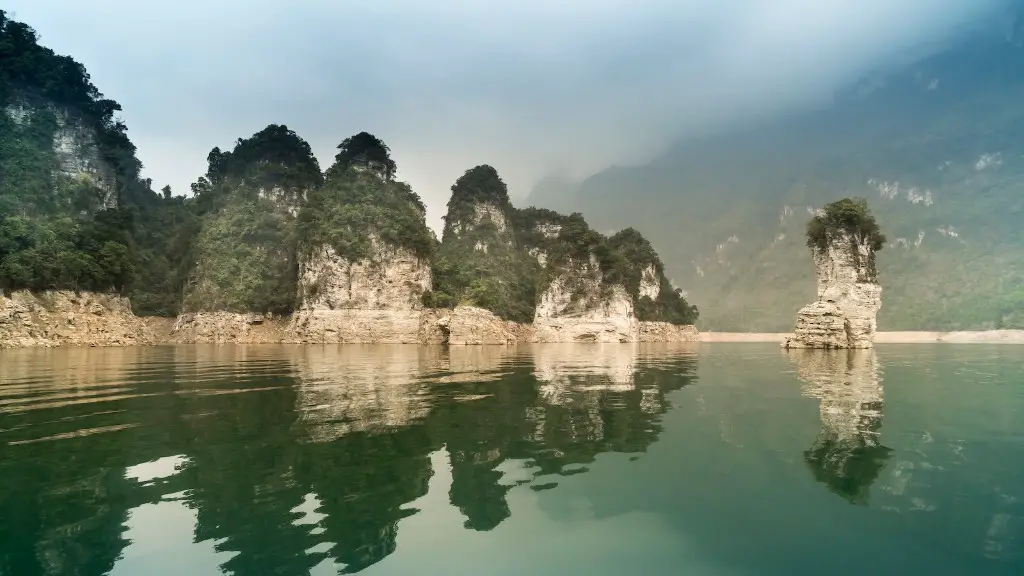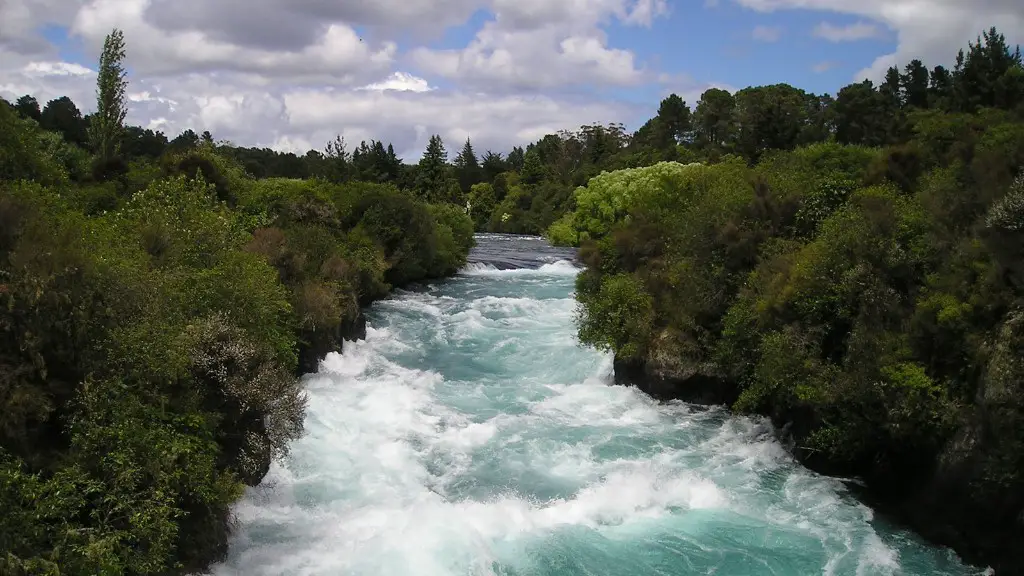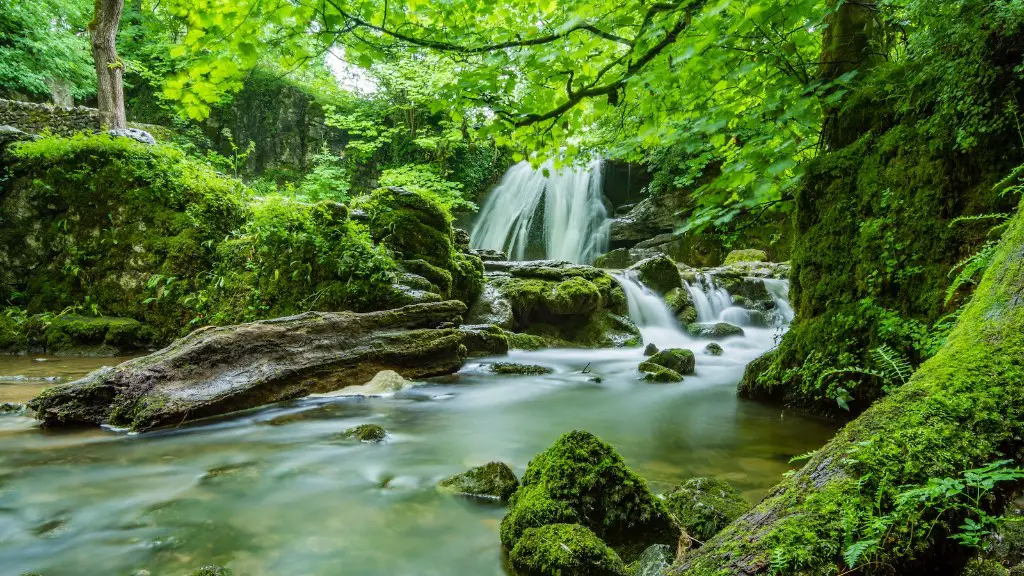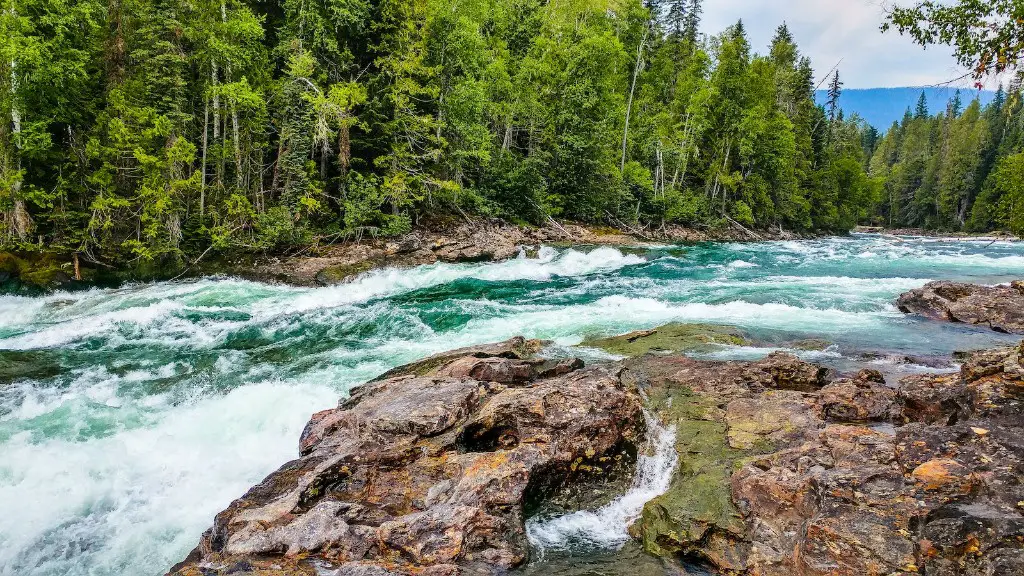Introduction
The Nile River is the world’s longest river, stretching more than 4,000 miles downstream from its source, Lake Victoria. The Nile passes through eleven different countries on its journey across Africa, eventually spilling into the Mediterranean Sea north of Alexandria, in Egypt. As a result, the relationship between the river and the Ancient Egyptians was incredibly close, with the Egyptians relying on the Nile for many of the resources essential to their way of life.
The Role of the Nile in Ancient Egyptian Civilization
For the Ancient Egyptians, the Nile was integral to the development and establishment of their culture and civilization. Historians believe that the size and stability of the great river allowed for the early development of a range of activities such as farming, fishing and trading. The regular flooding of the river’s banks left behind silt which was thought to be rich in natural nutrients perfect for crop cultivation. This in turn provided a stable food source for the Egyptians.
The various tributaries of the Nile allowed for trade goods and resources to be transported from the interior parts of Africa to the East and vice versa. Merchants and traders used the Nile as a symbol of their wealth and power. They also employed the Nile to transport goods such as pottery and tools, which were used to support the growing Egyptian population.
The Role of the Nile in Ancient Egyptian Religion
The Ancient Egyptians believed that the Nile was the source of their wealth and power. They attributed its wealth and fertility to the god Hapi, who was the god of the river’s inundation. The river was also considered to be the afterlife of the gods, with the gods journeying down the river on a divine boat. As such, the Nile was closely associated with the concept of life after death and immortality.
The river was also closely associated with the Ancient Egyptian’s religious beliefs. The Ancient Egyptians believed that the movement of the stars and the position of the stars in the night sky were connected with the flow of the Nile. This led to the development of an intricate system of astrology, which was closely related to the worship of the gods.
The Decline of the Nile in Egypt
As the years passed, the importance of the Nile in Ancient Egyptian culture and religion began to diminish. The growth of other civilizations along the Nile meant that there was a greater competition for resources. This led to the Nile’s usage being limited, as other nations could now export goods and resources more easily than the Egyptians could.
Modern developments, such as dams and irrigation systems, have further diminished the importance of the Nile in Egypt’s economy and culture. These modern developments have allowed other countries in the region to access the river’s resources, often to the detriment of the Egyptians’ own access. The reliance on modern technology has led to a decrease in the religious significance of the river.
Environmental Impact of the Nile in Egypt
The impact of the Nile on the environment has been significant. The influx of people and goods for trade and travel has caused disruption to the ecosystem. The erosion of the banks of the Nile has resulted in a loss of habitats, as well as a decrease in the biodiversity of the river. Rising water temperatures and pollution from heavily populated areas close to the river have further damaged the life of the Nile.
The increasing rate of population growth in Egypt has also brought with it an increase in pollution of the river with agricultural and industrial waste. This in turn has caused an increased concentration of pollutants in the Nile, leading to an overall reduction in water quality.
Conclusion
The Nile River has been inextricably linked to Ancient Egyptian culture and religion since the dawn of the civilisation. Its unique characteristics have enabled the Egyptians to develop an advanced way of life which is unimaginable without the River. Despite this deep connection, the river is no longer as important to the Egyptians as it once was, thanks to modern technology and the growth of other nations along its course. The negative environmental impact of the Nile on Egypt is a continual cause for concern and many scientists believe that we need to do more to protect this vital asset of Egyptian heritage.
Political Impact of the Nile in Egypt
The relationship between Egypt and its neighbours along the Nile can be contentious at times. This dispute is often caused by issues of water sharing rights as Egypt controls more of the upper Nile than its downstream neighbours. This has caused Egypt to be seen as the dominant partner in terms of the River’s management, which can be seen as a source of tension within the region.
The political tensions between Egypt and its neighbours have been a source of instability since the 19th century. Disputes between downstream and upstream countries have been a regular occurrence, with the most recent being the 2018 dam crisis. In this event, Egypt and Ethiopia were in a rift over the construction of the Grand Ethiopian Renaissance Dam, which threatened the flow of the river.
Nile’s Place in Egyptian Archeology
The Nile has had a significant impact on archaeological discoveries in Egypt. It has provided archaeologists with a wealth of artefacts which have provided us with unprecedented insights into the life of the Egyptians. Many of the ancient Egyptian monuments built along the banks of the river are still around today and are a testament to the scale of the civilisation.
The vast number of ruins left behind by the ancient Egyptians demonstrate the immense power that the river possessed over the course of their civilisation. Many of these ruins are now UNESCO World Heritage Sites, providing a glimpse into the past that may never be seen again.
The future of the Nile in Egypt
The future of the Nile in Egypt is uncertain. Increasing population growth is leading to an increase in pollution levels, while the political tensions between Egypt and its neighbours threaten further disruption to Nile resources and water sharing agreements. Changes in weather patterns due to global climate change could also wreak havoc on the river’s ecosystem, leading to a decrease in its biodiversity.
Despite all of these challenges, the Egyptians and the international community need to work together to address the problems associated with the Nile. This would involve repairing the banks of the river and developing sustainable farming practices in order to maintain the river’s fertility. It would also involve strengthening regional trade links in order to reduce the competition for the Nile’s resources.
Preservation of the Nile
The importance of preserving the Nile cannot be understated. Many of the Ancient Egyptian monuments along the banks of the river are rapidly deteriorating as a result of the neglect of the international community. This is important not just for the archeology, but also for the future of the region, as the Nile is an essential lifeline and resource.
The preservation of the Nile is crucial in the fight to protect and preserve the environment. International cooperation is needed in order to ensure that the damage to the river is minimized and that a balance is struck between human needs and the river’s ecosystems.
The Nile’s Growing Popularity as a Tourist Destination
The beauty and majesty of the Nile is drawing more attention as a tourist destination. As a result, the number of tourists visiting the area has steadily increased since the turn of the millennium. This is beneficial to the local economy, as it encourages the development of infrastructure and boosts employment.
The tourism industry has been successful in creating unique experiences for visitors, many of which require an understanding of the ancient Egyptian culture and their relationship with the Nile. From luxury cruises to sightseeing tours, the possibilities are endless when it comes to exploring the river and its surroundings.
The Importance of Education
The importance of education can’t be overstated when it comes to the protection of the Nile. Educating the public on the importance of the river in terms of its historical and environmental impact can help to raise awareness of the importance of preserving this vital resource. It is necessary to ensure that people understand the various ways in which the Nile can be protected and the implications of not taking action.
Educational initiatives targeting youth are the key to ensuring that the Nile is protected for future generations. These initiatives should focus on the ecological importance of the river and the ways in which it can be protected.
Conclusion
The Nile River has been a source of life for the Ancient Egyptians for millennia and continues to be a vital lifeline for many people in Egypt today. It has provided the Egyptians with food, transport and resources and is one of the most important rivers in the world. Despite its decline in importance over the years, the river is of immense cultural and historical importance and it is the responsibility of all citizens to ensure that it is preserved and protected into the future.





